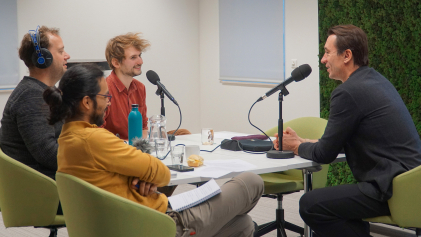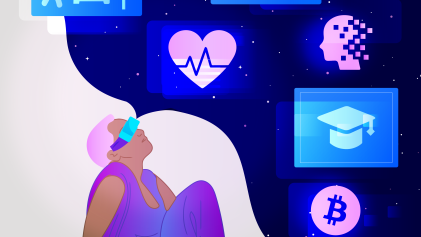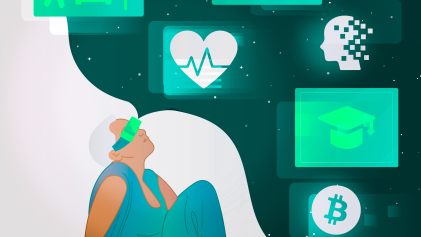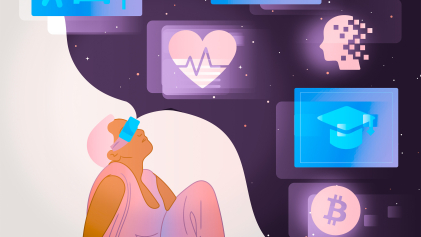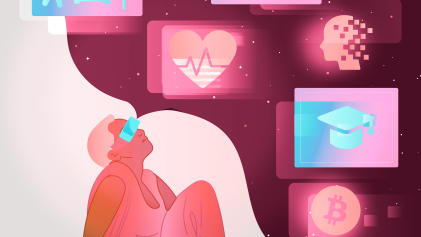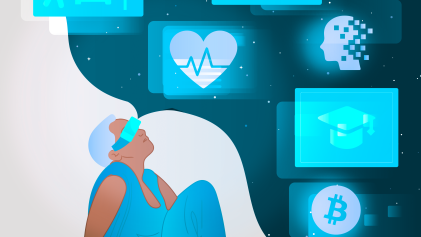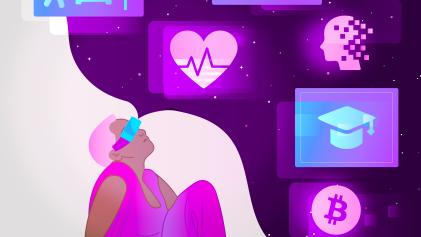File: metaverse
The metaverse: it's a term you hear more and more often. Big companies like Meta, Microsoft, Apple and Epic are investing billions of euros in this 'new internet', where you don't go on, but into. The Rathenau Instituut researches the developments surrounding the metaverse, and talks about it with citizens and the government, among others. In this online dossier, you will read, hear and see more and more about our results in the coming period.
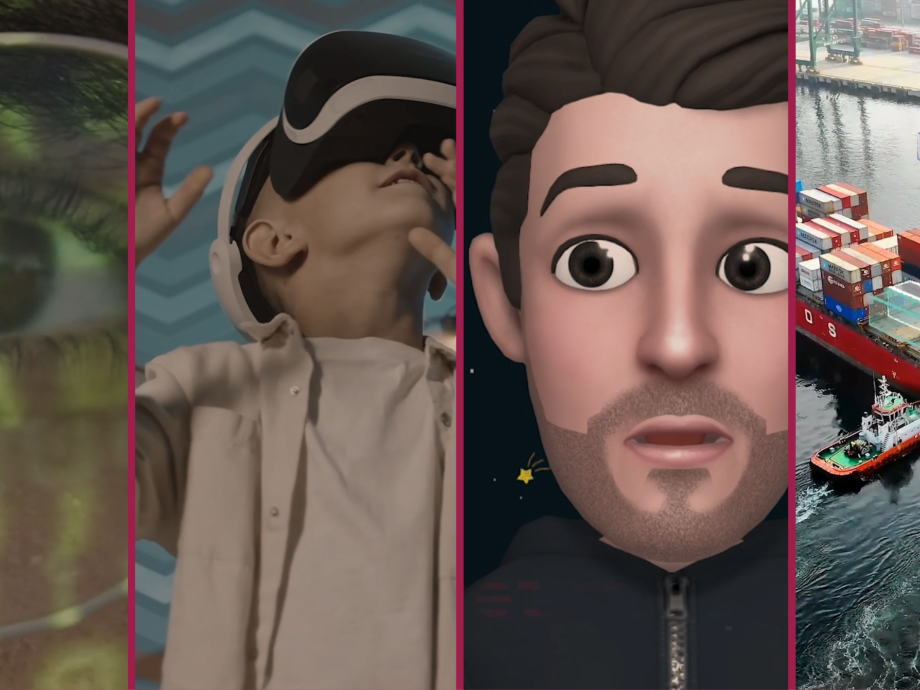
It's still unclear what exactly the metaverse will look like. But what is clear is that companies are fully committed to immersive technology. These are technologies that immerse you completely in a digital world. These include virtual reality (VR), where you enter a whole new world through VR glasses. Another example is augmented reality (AR), where you put a digital layer over reality, for example through glasses or your phone. Voice technology is another important component: you no longer communicate with the digital world via a keyboard or screen, but with your voice.
For years, the Rathenau Instituut has been studying the impact of such technologies on, for example, your privacy, autonomy and health. We have drawn up ten design requirements for a responsible digital society. By doing so, we want to stimulate governments, businesses and citizens to take action and engage in a dialogue.
We initiate conversations with citizens, developers and governments because large private investments in the metaverse require public visions of that metaverse. We discuss questions such as: what needs to happen to ensure that the metaverse enriches our world and does not impoverish it? How do we protect children from the risks of immersive technology in education? And is our democracy resilient enough to handle further blurring of the lines between fake and real?
Want to contribute or have a question?
What is the metaverse?
Academics, tech companies, and journalists describe the metaverse in different ways. What these different descriptions have in common is that they all paint a picture of a (future) partly virtual environment in which people will come together. We, therefore, see the metaverse as a vision of the digital environment of the future, in which we interact, work and live. The interpretation of this vision varies, but one or more of the following aspects often recur:
- It is a digital environment where you don't go 'on' but 'in' using virtual reality (VR) technology, among other things.
- It is an environment where the digital and physical worlds integrate more deeply through augmented reality (AR) technology, among other things.
- The environment is characterised by a virtual economy, where people generate new forms of income.
- In this environment, users have more control over their data than in today's large platform-dominated internet
The current digital infrastructure cannot deliver this. It is, therefore, questionable how realistic the above descriptions are.
Want to know more? Read our article What is the metaverse?
New Rathenau podcast: Immersed in a new reality
Will we soon be living in a metaverse, where we are completely immersed in a digital world? In the Rathenau Instituut’s new podcast series, Stefan Roolvink and Wouter Nieuwenhuizen seek answers to these and other questions about our digital future. How will new immersive technologies - such as virtual reality and augmented reality - be used in public spaces, in a classroom or in a doctor’s office? How will this affect our society and the way we interact with each other? Stefan and Wouter visit places where these new technologies are being used and discuss them with scientists and artists.
From March 2023, you will find all episodes on the website of the Rathenau Instituut and in your favourite podcast app.
